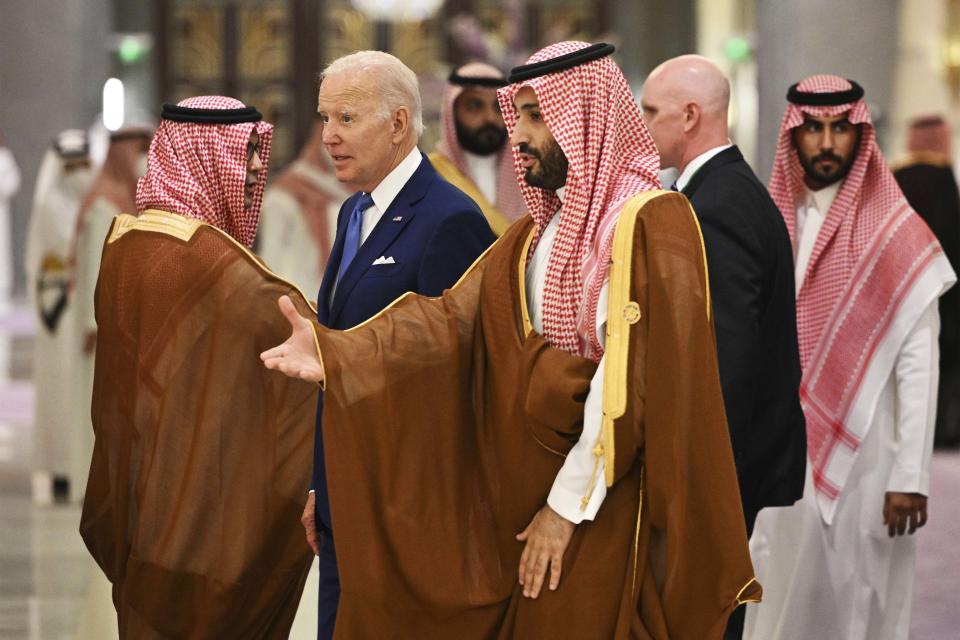Biden warns there will be 'consequences' for Saudi Arabia after oil production cut
- Oops!Something went wrong.Please try again later.
- Oops!Something went wrong.Please try again later.
President Joe Biden warned Tuesday that Saudi Arabia would face "consequences" after OPEC+ last week announced the biggest cut in oil production since the start of the pandemic.
Senior Democrats on Capitol Hill have condemned the decision by Saudi Arabia, the de facto leader of the oil-producing alliance, to reduce the global supply of petroleum. Higher oil prices are seen as helping Russia, the world's second-largest oil exporter, finance its war in Ukraine.
"There’s going to be some consequences for what they’ve done with Russia," Biden said of Saudi Arabia in an interview with CNN's Jake Tapper. “I’m not going to get into what I’d consider and what I have in mind. But there will be — there will be consequences.”

The president indicated Congress will act when it is back in session after the midterm elections.
White House press secretary Karine Jean-Pierre said at a briefing earlier Tuesday that the U.S. would reassess its relationship with Saudi Arabia following OPEC+'s "decision to align their energy policy with Russia’s war."
"We need to kind of reassess and have a different relationship with Saudi Arabia," she said, adding that the White House will review its policies in the coming weeks and months.
Asked by Tapper whether it's time for the U.S. to rethink its relationship with Saudi Arabia, Biden said, "Yes."
Sen. Bob Menendez, D-N.J., who chairs the Foreign Relations Committee, called on the Biden administration Monday to "immediately freeze" U.S. cooperation with Saudi Arabia.
OPEC+’s announcement that it will reduce production by 2 million barrels a day came shortly after Russian President Vladimir Putin renewed nuclear threats he initially made when Russia invaded Ukraine in February.
Putin warned of using nuclear weapons late last month in a televised national address in which his defense minister announced the call-up of 300,000 reservists after Russia's military forces suffered severe setbacks on the battlefield in Ukraine.
In blunt remarks at a Democratic fundraiser last week, Biden said there has been a “direct threat” of nuclear weapons being used for the first time since the 1962 Cuban Missile Crisis, “if, in fact, things continue down the path they are going.”
Asked Tuesday how the U.S. would respond if Putin follows through on his threat to use weapons of mass destruction, Biden told CNN that the Defense Department had discussed the possibility, "but I’m not going to get into that."
"It would be irresponsible of me to talk about what we would or wouldn’t do," Biden added.
He also suggested it was unwise of Putin to raise the specter of nuclear weapons.
"I don’t think he will" use them, Biden said. "But I think that it's irresponsible for him to talk about it."
This article was originally published on NBCNews.com

